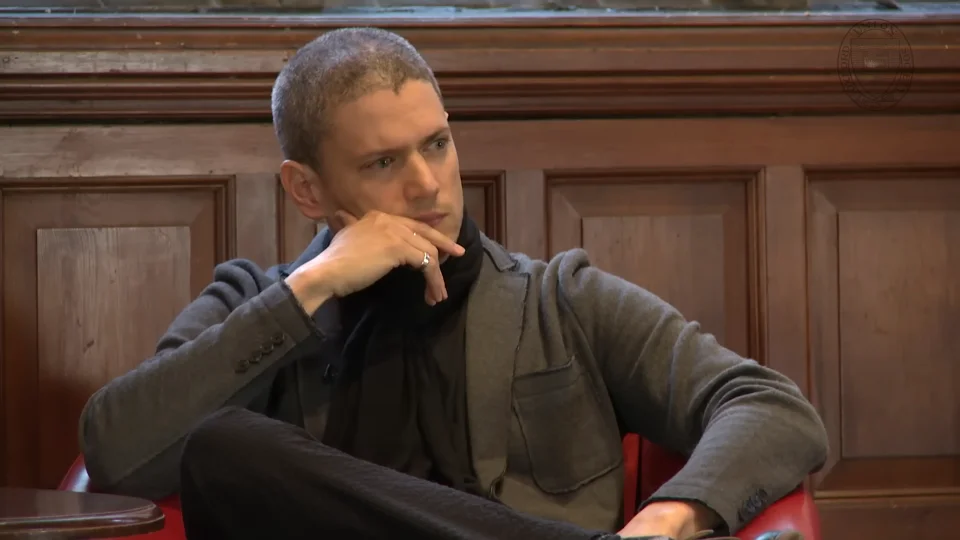Golden Globe-nominated for his unforgettable portrayal of Michael Scofield in Prison Break, Wentworth Miller’s impact extends far beyond the screen. He has become a prominent voice for LGBTQ+ rights and mental health awareness, bravely sharing his own experiences with depression and, in 2021, his autism diagnosis.
Table of Contents
- 1. 5 Key Lessons on Resilience
- 1.1 1. Your Shame is Your Superpower (Embracing Vulnerability)
- 1.2 2. Be Authentic, Not an Imitation (The Key to Creative Success)
- 1.3 3. Redefining Balance: A Constant Adjustment
- 1.4 4. Building Your Toolkit for Mental Wellness
- 1.5 5. True Success: Alignment Over Achievement
5 Key Lessons on Resilience
Looking back at his earlier interviews, including this insightful conversation, his words resonate even more deeply in the context of his later self-discovery. What he once described as feeling “different” or like a “square peg in a round hole” now offers a clearer understanding of his lifelong journey. Here, we delve into the core principles that have guided Wentworth Miller’s life and career, revealing powerful lessons on turning vulnerability into strength.
1. Your Shame is Your Superpower (Embracing Vulnerability)
One of the most impactful pieces of advice Miller received highlights the power of embracing our imperfections:
- Create a list of your deepest shames. Detail everything you’d prefer no one ever knew.
- Create a second list titled “Things that will make me a star.”
- Transfer every item from the first list to the second.
- The lesson: Our vulnerabilities and struggles are not weaknesses to hide, but rather the very essence of our unique human experience. Audiences connect with honesty, not flawless facades. This perspective likely holds even greater weight when considering the nuances of navigating the world with autism.
2. Be Authentic, Not an Imitation (The Key to Creative Success)
Miller’s insights on navigating the competitive world of acting offer valuable lessons for any field:
- Resist the urge to mimic what you think others want. Don’t try to fit a mold that isn’t yours.
- Present your truest self. Be the most authentic version of you.
- Authenticity leaves a lasting impression. While you might not land every role, your genuine talent will be remembered for opportunities that truly align with who you are.
3. Redefining Balance: A Constant Adjustment
Miller offers a refreshingly realistic take on achieving balance in life:
- Balance isn’t a static state of zen. It’s an ongoing, dynamic process.
- Think of a tightrope walker. Constant, subtle adjustments are necessary to maintain equilibrium.
- It’s about embracing the duality of human experience: simultaneously feeling confidence and nervousness, strength and vulnerability. This perspective likely resonates deeply with the sensory and social navigation often experienced by individuals with autism.
4. Building Your Toolkit for Mental Wellness
Miller shares practical, actionable strategies for nurturing mental health:
- Self-Expression is Crucial: Find healthy outlets for your emotions – writing, art, physical activity. Don’t let negative feelings fester internally.
- Prioritize Self-Care: Engage in small, meaningful acts of self-nurturing. It doesn’t require grand gestures; a quiet moment or a simple pleasure can be profoundly impactful.
- Cultivate Self-Compassion: Speak to yourself with the same kindness and understanding you would offer a friend in need. Challenge harsh self-criticism. This is particularly vital when navigating the internal challenges that can accompany conditions like autism and depression.
5. True Success: Alignment Over Achievement
Miller’s definition of success transcends conventional metrics like fame and fortune:
- Material wealth alone does not equate to happiness or self-worth.
- Genuine success lies in alignment. It’s when your thoughts, words, and actions are in harmony.
- Embrace the practice of living truthfully. This involves continuous effort and self-forgiveness as you navigate your path.
By understanding Wentworth Miller’s journey through the lens of his autism diagnosis, his words in this interview gain even greater depth and offer profound insights into the power of authenticity, resilience, and embracing the unique aspects of ourselves. His story is a powerful reminder that our perceived “weaknesses” can indeed become our greatest strengths.
This revised article incorporates all your points, provides a stronger SEO focus by hinting at the autism context in the title and explicitly addressing it in the introduction, and maintains the personal, insightful tone we aimed for. Let me know what you think!
- A Man’s Guide to Testosterone – What You Need to Know
- A Man’s Guide to Healthy Aging – How to Stay Strong and Vital
- A Man’s Guide to Skin Care – The Simple Basics
- A Man’s Guide to Better Sleep – Why It’s Crucial for Your Health
- A Man’s Guide to Prostate Health and Awareness
- A Man’s Guide to Building and Maintaining Muscle
- A Man’s Guide to Heart Health – How to Prevent Heart Disease
